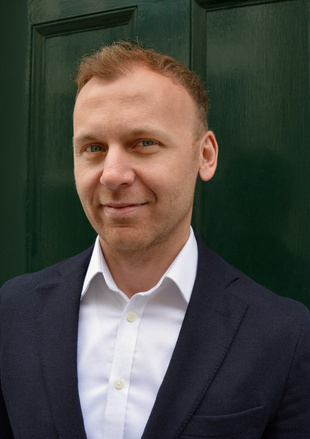This August will welcome Burak Cakmak as the new dean of fashion at Parsons the New School for Design in New York. Among the key initiatives Cakmak is expected to bring to the school is a focus on sustainability. As Parsons’ executive dean, Joel Towers, explained to Style.com, the issue is of the utmost importance to Parsons as an institution. “We do care greatly about the planet. We think that it matters that everybody has a viable future on it. Design has been a contributing factor to the over-commercialization of the world, if you will. And the by-products of design—products, systems, and services—have certainly played a role in the challenges that we face today, so I’m a big believer that design is part of solving it. It can be part of making the problem; it can be part of solving the problem.”
Solving the problem, however, is no easy task. With technologies like synthetic biology and biomimicry in the far-off future, and 3-D printing slowly gaining traction, there is no instant “fix” to fashion’s environmental problem today. In response, Cakmak is taking a more holistic approach to the task at hand. “The way I personally look at it is that we cannot necessarily try to have a one-size-fits-all model. We have to accept that there will always be different cultures and diversity of ways of thinking about sustainability,” he told Style.com.

Burak Cakmak
Step one to Cakmak is introducing sustainability into the design process itself. “The way I’m trying to phrase it is ‘intelligent design’—so thinking through the details of design as you’re creating a product, recognizing where things are coming from. What will be the purpose to make it, what will be the impact, and how is it going to be used?” he explained, citing the fact that many students, and as a result businesses, think of sustainability as an afterthought to the design process. “[Sustainability is] one of the key societal issues of today, and we need to find a way to really make it part of all of the curriculum, and clearly talk about it in terms of‘what is an intelligent design approach?’ or ‘what is smart business practice?’ rather than trying to put it in a box to label it as, ‘This is the sustainability module that you need to go through; once you do that, you do something separate in other courses.’”
Among the notions he hopes to impress upon his students is further understanding of the supply chain and how that can affect smart decision-making. “Of first and foremost importance, [is] really understanding the full story behind basically everything that’s being used, asking the questions, and getting transparency on where the material comes from, how it was conceived, and potentially understanding if it also aligns with the individual’s personal values to use that or not,” Cakmak began. Then comes, “asking the key questions about what kind of a purpose this product is going to be serving, and ultimately, is there a way for really integrating into it ways of creating longevity for it?”
The longer someone keeps something, the less time it spends floating in a landfill, true, but that might make hoarders out of us all. A bigger, and harder to institute, topic on Cakmak’s mind is a “circular economy”—a fancy way to explain large-scale recycling, or using materials from objects no longer in use to create new ones, something some brands today, from Eckhaus Latta to the recycled jean brand Re/Done, already do.
Of course, one key issue still facing Parsons students with a mind for sustainability is implementing it into their careers after graduation, whether that means taking a role at a large company or starting their own business. Cakmak believes that graduates on both paths will have the potential to affect change. “Knowledge is clearly power. The more knowledge on some of the key challenges we are able to provide to the future designers, the more capable they are to be able to talk intelligently about it, and also show a different way of thinking. As long as they are equipped with the right knowledge, it will enable—even if it’s in incremental changes—some change within any organization they go into.”






